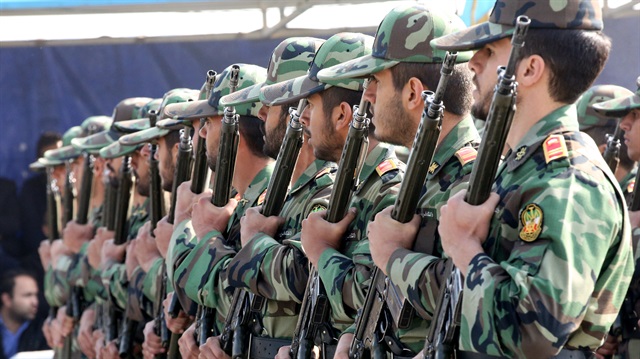

File photo
Iran will maintain its military presence in Syria despite U.S. pressure for its withdrawal, a senior Iranian official said on Tuesday, revealing more details about a military cooperation deal that Tehran and Damascus signed this week.
Iranian Defence Minister Amir Hatami visited Damascus on Saturday for talks with Syrian President Bashar al-Assad and senior military officials. He signed a deal for military cooperation in a meeting with his Syrian counterpart, but details of the accord were not revealed.
"The continued presence of Iranian (military) advisers in Syria was part of this military cooperation agreement between Tehran and Damascus," the state news agency IRNA quoted Tehran's military attache to Damascus, Abolqassem Alinejad, as saying.
The accord also emphasised the importance of Syria's territorial integrity and sovereignty, he said, adding that it came into effect on the day of its signing.
"Iran will help Syria in clearing minefields in different parts of the country... Iran will help Syria to rebuild the military factories that were damaged in the war," Alinejad said.
Iran’s Revolutionary Guards have sent weapons and thousands of soldiers to Syria to help shore up Assad during the seven-year-long civil war there.
U.S. National Security Adviser John Bolton reiterated last week Washington's call for Iran to remove all its forces from Syria.
The United States has reimposed economic sanctions against Iran partly over its involvement in conflicts in Syria, Iraq and Yemen as well as over its nuclear and missile programmes.
Israel has accused Tehran of seeking a permanent military presence in Syria. Iran has repeatedly said its military presence in Syria is at the invitation of the Assad government and that it has no immediate plans to withdraw.
More than 1,000 Iranians, including senior members of the elite Revolutionary Guards, have been killed in Syria since 2012.
The Guards initially kept quiet about their role in the Syria conflict. But in recent years, as casualties have mounted, they have been more outspoken about their engagement, framing it as an existential struggle against Daesh.
#Iran
#Syria
#US
#Assad




